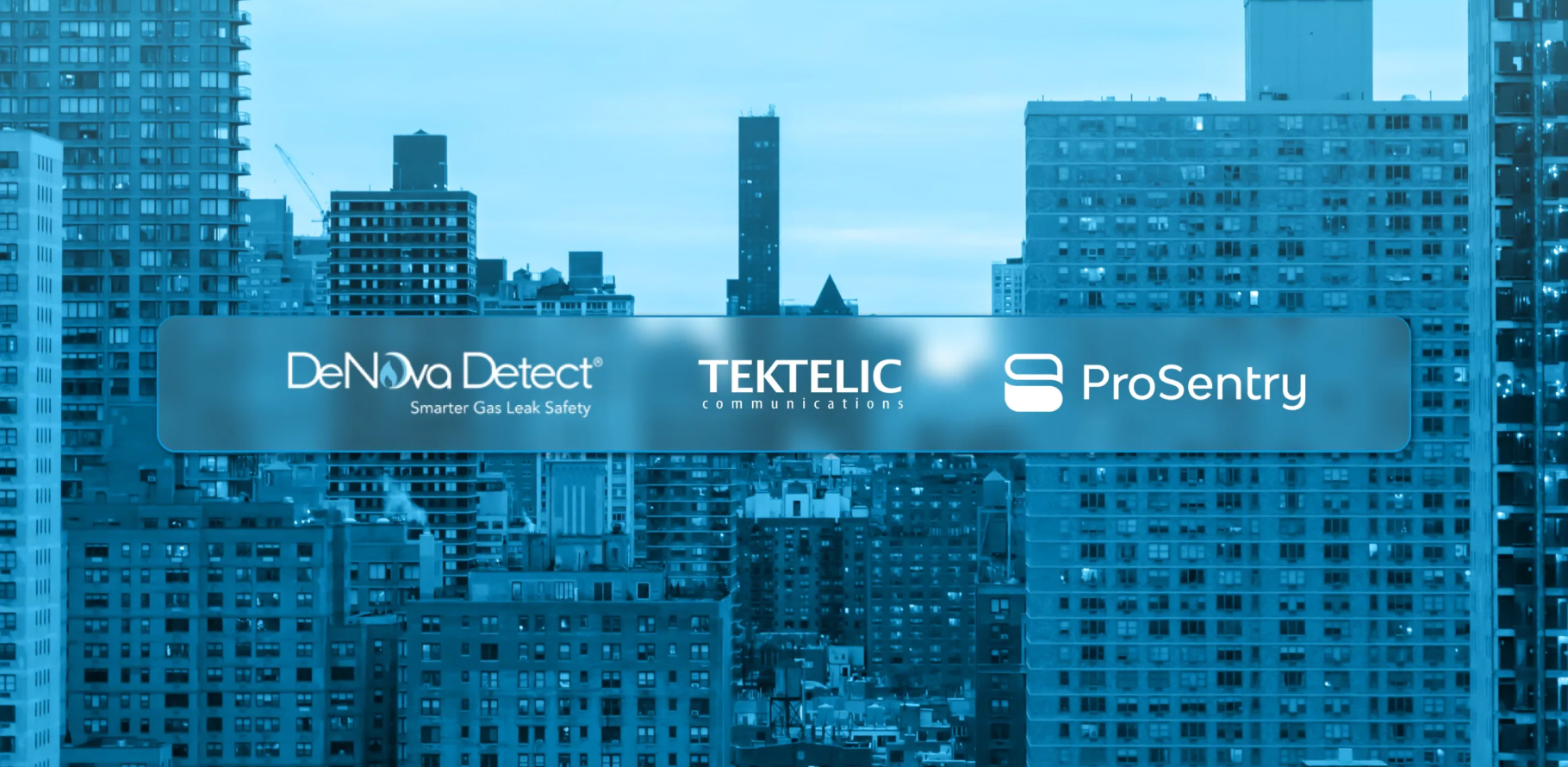Lowering Insurance Premiums Using Innovative Risk Mitigation
A case study looking at how a leading hotel and casino leveraged technology for financial benefits & risk reduction.
A case study looking at how a leading hotel and casino leveraged technology for financial benefits & risk reduction.
We propose to illustrate the benefits of proactive property management, which uses the highest standards of risk mitigation to reduce insurance risk and premiums. This need is greater than ever, now that businesses are faced with ever-increasing premiums and insurers battle increasing frequency and severity of losses, along with rampant inflation.


One of the preeminent casino hotels in Atlantic City was faced with unusually cold temperatures in 2022. This property, like many other buildings in the Northeast, had a substantial loss related to extreme low temperatures that froze and fractured a pipe causing a major water leak and substantial damage. The insurance payment for the damage was over $5MM.
Given the claims history, along with current market conditions, ownership knew it would face a challenging insurance renewal. Their insurance broker forecasted an increase in the expiring property insurance premiums totaling close to $5MM over the next five years. This was clearly devastating news and a significant budgetary concern.
In addition to the water damage loss, there were other challenges facing the renewal. The casino hotel is located on a barrier island off the coast of New Jersey and is exposed to increased risk of loss from wind and flood damage caused by hurricanes. Insuring the 1000-room hotel and casino requires that multiple insurers come together in what is referred to as a “shared and layered program” to create enough capacity to cover the total insured values. The most difficult “layers” of coverage to secure are the first $25MM in limits, which is where most losses take place.
The water damage loss, and the combined risk of nearly $1BB of insured values, further reduced the number of insurers willing to provide coverage for the first $10MM layer. Knowing there are a finite amount of controls that can be put in place to combat hurricane perils, and those were already implemented, the casino hotel’s risk manager focused on hardening the property against additional water damage losses.
Craig Barnet, CIC of MSG Risk Management, suggested ProSentry, a new “Risk Mitigation as a Service” company that supplies small, wireless Point of Leak (PoL) water sensors and other risk mitigating devices to address high risks that properties face. ProSentry’s team, led by Co-Founders John Rusk and Nadav Schnall together with Technical Manager Dan Hurley, proposed an initial deployment of temperature sensors placed inside economizers which suffered from freezing temperatures; water leak sensors and temperature sensors around pool filters, pumps, and mechanical equipment; and outfitted automatic water shutoff valves which would close in the event of a catastrophic leak. Other sensors for oil detection were added to alert in the event of environmental leaks.
Insurance carriers do not like to see claims frequency, severity, or repetition. With an investment of less than $70K, the hotel was able to show the insurance marketplace a proactive approach to avoid and reduce water damage losses, addressing concerns about all three loss categories. In response to the water loss risk mitigation actions of ProSentry, MSG worked with the marketplace and increased interest from insurance carriers, creating competition in the primary layers. Instead of the projected $1MM increase, the casino hotel was able to bind their renewal with a modest increase which was in line with general market conditions and values inflation.
It is estimated that, due to the increased competition generated by ProSentry’s risk mitigating platform, the hotel saved close to $5MM over the next five years. This is over a 70X return on investment, and substantially better when future business disruption is figured in. The hotel is currently planning additional deployments for second-tier risks, which will include the hotel rooms, plumbing shafts, and electrical equipment rooms.
One of the key features of the ProSentry platform noted by both clients and their insurers was the notification system. While ProSentry provides dashboard alerts, in-app alerts, emails, and text messages, it also provides near-instant live operator calls directly to the hotel’s 24/7 security team, assuring risks are addressed in the shortest amount of time.
As the casino hotel considered other potential leak detection systems, it ultimately chose ProSentry for its robust risk-mitigating platform and considerable range of sensor offerings, such as industrial-sized valves and oil sensors, as well as industrial-grade water, temperature, and humidity sensors. It also noted that ProSentry’s upcoming new risk mitigating devices such as staff panic buttons, bedbug sensors, and smoke and vape sensors were of interest as the hotel considers additional layers of sensing capabilities.
These sensors benefit from being connected to an in-building wireless network powered by Netmore, a ProSentry partner. With Netmore’s high-availability enterprise-grade network services included, the ProSentry system can actively monitor and manage the network and device infrastructure, providing the added value of real-time actionable sensor data for the hotel.
ProSentry provides a Smart Building Platform which streamlines smart sensor technology into one centralized dashboard for building-wide insight, risk prevention, and effective response. Visit ProSentry.com for more information. See the case study.
We propose to illustrate the benefits of proactive property management, which uses the highest standards of risk mitigation to reduce insurance risk and premiums. This need is greater than ever, now that businesses are faced with ever-increasing premiums and insurers battle increasing frequency and severity of losses, along with rampant inflation.
One of the preeminent casino hotels in Atlantic City was faced with unusually cold temperatures in 2022. This property, like many other buildings in the Northeast, had a substantial loss related to extreme low temperatures that froze and fractured a pipe causing a major water leak and substantial damage. The insurance payment for the damage was over $5MM.
Given the claims history, along with current market conditions, ownership knew it would face a challenging insurance renewal. Their insurance broker forecasted an increase in the expiring property insurance premiums totaling close to $5MM over the next five years. This was clearly devastating news and a significant budgetary concern.
In addition to the water damage loss, there were other challenges facing the renewal. The casino hotel is located on a barrier island off the coast of New Jersey and is exposed to increased risk of loss from wind and flood damage caused by hurricanes. Insuring the 1000-room hotel and casino requires that multiple insurers come together in what is referred to as a “shared and layered program” to create enough capacity to cover the total insured values. The most difficult “layers” of coverage to secure are the first $25MM in limits, which is where most losses take place.
The water damage loss, and the combined risk of nearly $1BB of insured values, further reduced the number of insurers willing to provide coverage for the first $10MM layer. Knowing there are a finite amount of controls that can be put in place to combat hurricane perils, and those were already implemented, the casino hotel’s risk manager focused on hardening the property against additional water damage losses.
Craig Barnet, CIC of MSG Risk Management, suggested ProSentry, a new “Risk Mitigation as a Service” company that supplies small, wireless Point of Leak (PoL) water sensors and other risk mitigating devices to address high risks that properties face. ProSentry’s team, led by Co-Founders John Rusk and Nadav Schnall together with Technical Manager Dan Hurley, proposed an initial deployment of temperature sensors placed inside economizers which suffered from freezing temperatures; water leak sensors and temperature sensors around pool filters, pumps, and mechanical equipment; and outfitted automatic water shutoff valves which would close in the event of a catastrophic leak. Other sensors for oil detection were added to alert in the event of environmental leaks.
Insurance carriers do not like to see claims frequency, severity, or repetition. With an investment of less than $70K, the hotel was able to show the insurance marketplace a proactive approach to avoid and reduce water damage losses, addressing concerns about all three loss categories. In response to the water loss risk mitigation actions of ProSentry, MSG worked with the marketplace and increased interest from insurance carriers, creating competition in the primary layers. Instead of the projected $1MM increase, the casino hotel was able to bind their renewal with a modest increase which was in line with general market conditions and values inflation.
It is estimated that, due to the increased competition generated by ProSentry’s risk mitigating platform, the hotel saved close to $5MM over the next five years. This is over a 70X return on investment, and substantially better when future business disruption is figured in. The hotel is currently planning additional deployments for second-tier risks, which will include the hotel rooms, plumbing shafts, and electrical equipment rooms.
One of the key features of the ProSentry platform noted by both clients and their insurers was the notification system. While ProSentry provides dashboard alerts, in-app alerts, emails, and text messages, it also provides near-instant live operator calls directly to the hotel’s 24/7 security team, assuring risks are addressed in the shortest amount of time.
As the casino hotel considered other potential leak detection systems, it ultimately chose ProSentry for its robust risk-mitigating platform and considerable range of sensor offerings, such as industrial-sized valves and oil sensors, as well as industrial-grade water, temperature, and humidity sensors. It also noted that ProSentry’s upcoming new risk mitigating devices such as staff panic buttons, bedbug sensors, and smoke and vape sensors were of interest as the hotel considers additional layers of sensing capabilities.
These sensors benefit from being connected to an in-building wireless network powered by Netmore, a ProSentry partner. With Netmore’s high-availability enterprise-grade network services included, the ProSentry system can actively monitor and manage the network and device infrastructure, providing the added value of real-time actionable sensor data for the hotel.
ProSentry provides a Smart Building Platform which streamlines smart sensor technology into one centralized dashboard for building-wide insight, risk prevention, and effective response. Visit ProSentry.com for more information. See the case study.
Insights, innovations and updates from the ProSentry Knowledge Base

In New York City, Local Law 157 (LL157) now requires natural gas alarms to be installed in every room containing a gas appliance by May 1, 2025.

Discover how ProSentry’s LoRaWAN-powered sensors protect properties with enterprise-grade security, no internet dependency, and end-to-end encryption, keeping your building safe from both water leaks and cyber threats.

In New York City, Local Law 157 (LL157) now requires natural gas alarms to be installed in every room containing a gas appliance by May 1, 2025.
Explore the Knowledge Base